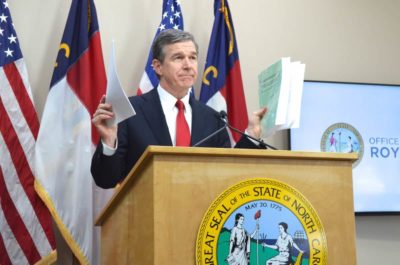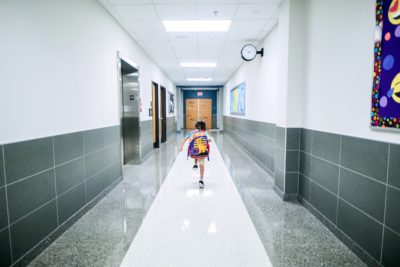
Hearty congratulations go out to the 90 young men and women in the class of 2017 at Warren County High School – and congratulations, too, to Principal Darrell Richardson, and to their guidance counselors and teachers.
All 90 graduates have been accepted into community colleges and universities and plan to pursue education beyond high school. It is a promising transition in the lives of the students and an important achievement for a school in a completely rural, majority-minority, economically-distressed county where only 15 percent of adults have a bachelor’s degree.
The good news from Warren County comes at a time when rural communities and their schools have encountered severe economic and political headwinds. High-skill, higher-paying jobs have increasingly clustered in metropolitan areas, while many rural communities remain bruised and weakened by the jobs lost during the big recession of the previous decade.
In Washington, national education policy lately has come through the prism of big-city issues. Education Secretary Betsy DeVos went to Washington after her long experience in dealing with Detroit, just as her predecessor, Arnie Duncan, had his formative experiences in Chicago.
President Trump, a life-long resident of New York City, appointed DeVos to carry out his massive proposed cuts to federal education assistance and his plan to promote school choice, including tax-financed vouchers for students to attend private schools. The Trump budget has run into resistance from Republicans as well as Democrats in Congress. Sen. Richard Shelby, an Alabama Republican, told DeVos at a recent hearing that a school-choice policy does not do much for rural communities with no real options except to depend on its public schools.
In Raleigh, state legislators have not adopted an explicitly urban tilt in education policy and budgeting. But their key decisions — to expand a voucher system and, especially, to set a tight limit on budget growth — offer meager promise of a powerful uplift to rural education.
A just-published report in Governing magazine provides perspective. The article — headlined, “Nation’s Least-Funded Schools Get What They Pay For’’ — focuses on Oklahoma, facing a deep budget hole having to do with a downturn in oil prices. But its broader analysis has relevance to North Carolina.
“The years since the Great Recession have been difficult on public education practically everywhere in the country, as states have been forced to adjust to a new spending reality,’’ says Governing, which points out that 23 states are providing less basic education funding than they did in 2008.
“But slow revenue growth isn’t the only reason some states have seen drastic cuts in education spending,” the article reports. “Of the eight that have cut general funding per student by 10 percent or more since 2008, five — Arizona, Kansas, North Carolina, Oklahoma and Wisconsin — have also enacted substantial income tax rate cuts.”
Further perspective on rural education comes from a fresh report by the venerable Economic Research Service of the U.S. Department of Agriculture. ERS reports that “rural Americans are increasingly educated,’’ but it also documents lingering gaps across racial, gender and geographic lines.
For example, the report points out that more rural women have earned bachelor’s degrees than rural men since 2000. Educational attainment has risen for blacks and Latinos, but they remain “only half as likely as whites to have a college degree.”
In a paragraph specifically about the rural South, the ERS makes a special point about the interrelationship of education and economic conditions. “Rural counties with the lower levels of educational attainment face higher poverty, child poverty, unemployment and population loss than other rural counties,’’ says the report, which goes on to define a downward spiral. “Lower educational attainment also contributes to poverty, so higher poverty in the South is both a cause and consequence of lower educational attainment.”
The aspirations of the Warren County High class of 2017 suggest that rural students can stand against the headwinds. Still, rural schools need local, state and national policymakers to bolster their capacity to give young people propulsion beyond the 12th grade, whether they choose to live in a city or in their hometown.
Recommended reading



